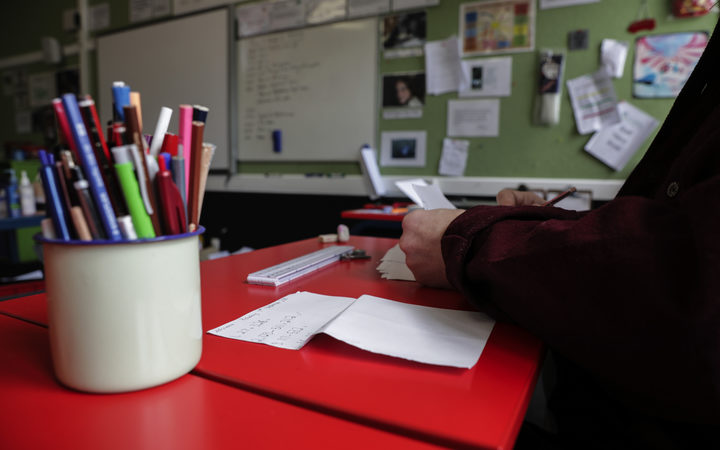
A report from the Education Review Office (ERO) said NCEA achievement rates had fallen, with students from poorer communities the furthest behind.
It said it was seriously concerned about the lasting impacts, and it would not be easy to bounce back.
Nearly half (43 percent) of principals said learning was worse than would be expected at this time of year - a big increase on 2021 when the number was 27 percent.
NCEA Level 2 achievement rates were below where they were before the pandemic.
Many principals highlighted writing as the biggest area of concern.
From 2020 to 2022, modifications were made to award additional credits to acknowledge the difficulties students had during the pandemic.
If these changes had not been made, achievement in 2022 would have been even lower.
The pandemic has had a serious impact on attendance.
Regular attendance dropped as low as 40 percent in Term 2 of 2022 and had only recovered to 51 percent by the end of the year.
The report said challenging behaviour remained a significant issue - four in 10 principals were concerned that learner behaviour was worse than they would expect - about the same as in 2021.
Only one in five principals thought their schools had recovered from the disruptions caused by Covid-19.
Principals in poorer communities were nearly twice as likely to say their school had not recovered from Covid-19 disruptions.
ERO said it was significantly concerned about the lasting impacts of the pandemic.
"Looking at these findings we know that learners need more support, however, we also know that teachers and principals are struggling. This combination of issues is particularly concerning," ERO Education Evaluation Centre head Ruth Shinoda said.
Students feel more connected
The research noted that students were now happier and felt more connected to friends than during the pandemic.
It said more than two thirds (68 percent) of learners felt happy most or all of the time, compared with 61 percent in 2021 and 62 percent in 2020.
The report, Long-Covid: Ongoing Impacts of Covid-19 on Schools and Learning, tracked students and schools over three years.
More than 3000 students were surveyed from 98 schools. About 1200 principals and 350 teachers took part.
The research found staff felt unable to manage their workload.
Only a quarter (26 percent) of teachers reported their workload was manageable (down from 42 percent in 2020), and only 16 percent of principals said theirs was (down from 26 percent in 2020).
ERO recommends making up for lost learning opportunities by increasing school attendance and time learning.
"We also need to help learners catch up by better understanding where learning gaps are and by prioritising skills like reading, writing and numeracy.
"We need to target support for those schools who need it the most and support educators to respond to the ongoing challenges."












